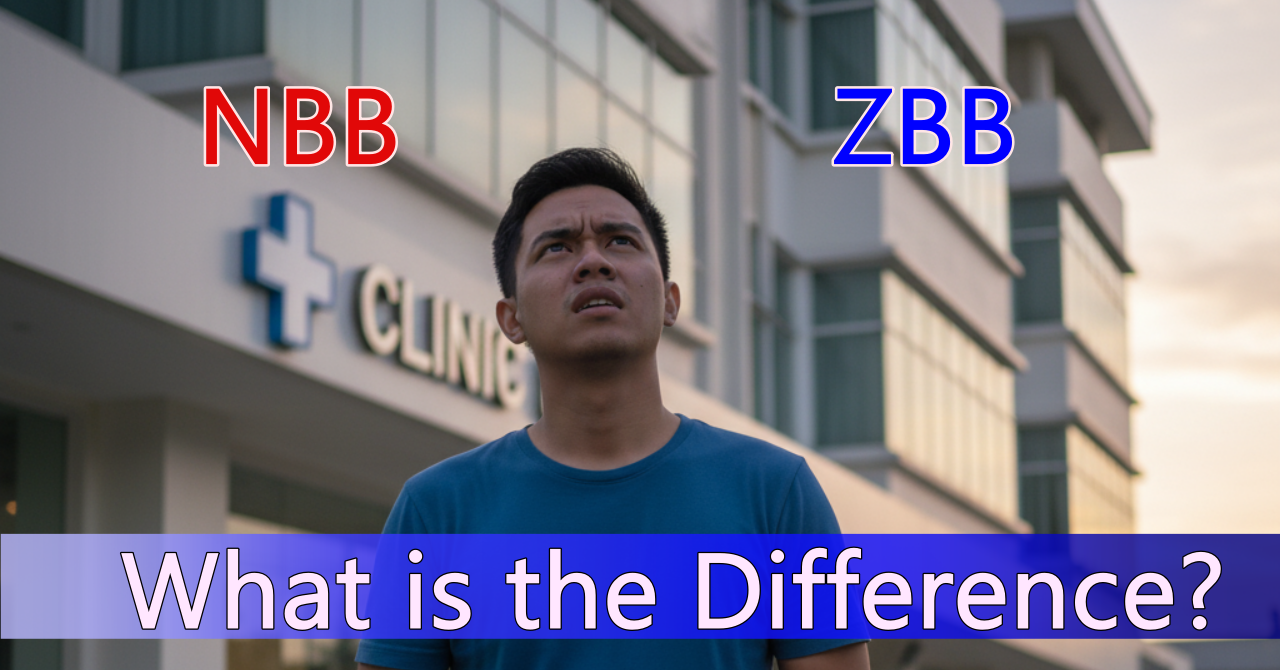We’ve been hearing these terms a lot on the news lately—Zero Balance Billing (ZBB) and No Balance Billing (NBB). But for many families, there’s still confusion about what they really mean and how they affect hospital bills. Let’s set the record straight so you’ll know exactly what to expect if you or a loved one is hospitalized.

What Is No Balance Billing (NBB)?
No Balance Billing (NBB) was introduced by PhilHealth back in 2011. It was designed mainly to protect indigent and sponsored members from “balance billing”—the practice of hospitals charging patients beyond PhilHealth’s coverage.
Here’s how it works:
- If you are an indigent patient admitted to a PhilHealth-accredited public hospital, your total hospital bill should not exceed the PhilHealth case rate package for your condition.
- This means you won’t be billed extra beyond what PhilHealth pays.
NBB was a targeted safety net, focusing on the poorest Filipinos to ensure they could access medical care without drowning in debt. But it had its limits: if your expenses went beyond the package rate and you weren’t classified as indigent, you might still shoulder the excess.
What Is Zero Balance Billing (ZBB)?
Zero Balance Billing (ZBB) is the upgraded version of NBB, strengthened under the Universal Health Care (UHC) Law. The principle is simple: if you are admitted in a Department of Health (DOH)-run hospital ward (basic accommodation), you should walk out with a zero bill—no out-of-pocket costs at all.
ZBB goes beyond the old NBB by covering:
- Room and board in basic accommodations
- Medicines and supplies
- Laboratory tests and diagnostics
- Professional fees (doctor’s fees)
- Surgeries and other procedures
It applies to all patients in DOH hospitals under ward accommodation, regardless of income or PhilHealth contribution history.
Key Differences Between NBB and ZBB
To make it clearer, here’s a side-by-side comparison:
| Aspect | No Balance Billing (NBB) | Zero Balance Billing (ZBB) |
| Origin | Introduced by PhilHealth in 2011 | Strengthened under the Universal Health Care (UHC) Law |
| Coverage | Applies mainly to indigent and sponsored members | Applies to all patients admitted in DOH hospitals under basic/ward accommodation |
| Scope of Benefits | Patients can’t be charged beyond PhilHealth’s case rate | Patients should not pay anything at all—room, medicines, diagnostics, doctors’ fees, surgery, etc. |
| Hospital Type | Public hospitals accredited by PhilHealth | DOH-retained hospitals (not all government hospitals are DOH-run) |
| Limitations | If costs exceed PhilHealth’s package, patients may pay unless indigent | ZBB doesn’t apply in private rooms or private hospitals; charges may still occur |
| Goal | Protect the poor from surprise charges | Ensure financial protection for all in DOH hospitals |
Why the Distinction Matters
At first glance, NBB and ZBB may sound similar. Both aim to prevent poor families from being buried in hospital debt. But the scope and promise of each are very different.
- NBB: A safety net mainly for indigents. Coverage depends on PhilHealth case rates.
- ZBB: A broader guarantee under Universal Health Care. As long as you are confined in a DOH hospital ward, you should not pay a single centavo.
This shift reflects the government’s move from targeted assistance (for the poor only) to universal protection (for every Filipino).
What Families Should Keep in Mind
If you or a loved one is hospitalized, here are the key takeaways:
- In DOH hospitals, ward accommodation – You should be covered by Zero Balance Billing. This means no out-of-pocket expenses.
- In other PhilHealth-accredited government hospitals – If you are an indigent patient, you may still benefit from No Balance Billing, but only up to PhilHealth’s case rate.
- In private rooms or private hospitals – Neither ZBB nor NBB fully applies. You will likely shoulder expenses beyond PhilHealth coverage.
Practical Tips for Patients and Families
- Ask about your entitlement – Don’t be shy to confirm with hospital staff if your confinement qualifies under ZBB.
- Stay in ward/basic rooms – Choosing a private room may exclude you from ZBB.
- Keep your PhilHealth updated – While ZBB applies regardless of contribution history, keeping your membership updated ensures smoother processing.
- Prepare for gaps – If medicines or procedures are unavailable inside the hospital, you might still need to buy outside. Always clarify before spending.
Video: DOH clarifies coverage under zero-balance billing policy | Morning Matters
The Department of Health confirms that all patients admitted to basic or ward accommodations in DOH hospitals now receive full coverage under the zero balance billing policy.
Dr. Albert Domingo explains that patients no longer need to prove indigency or undergo interviews—what matters is staying in a DOH-run facility and not transferring to a private room.
Even those without PhilHealth contributions can be registered on the spot through the hospital’s Point of Service desk and still receive the same benefits.
The coverage includes everything needed during admission—from operations and medicines to newborn screening and orthopedic treatments.
For outpatient needs after discharge, programs like Yakap offer up to ₱20,000 worth of medicines yearly, giving families more breathing room to recover and move forward.
Final Thoughts
Zero Balance Billing (ZBB) and No Balance Billing (NBB) are important steps toward protecting Filipino families from crushing hospital expenses. NBB, introduced in 2011, was a targeted program to shield indigent patients. ZBB, expanded under the Universal Health Care Law, is a stronger promise: every Filipino admitted in a DOH hospital ward should leave with a zero bill.
The challenge now lies in implementation—ensuring hospitals have enough resources, patients are well-informed, and the policy works as intended.
For Filipino families, the bottom line is clear: if you’re admitted in a DOH hospital under ward accommodation, you should not pay anything out of pocket. That’s the promise of Zero Balance Billing.
